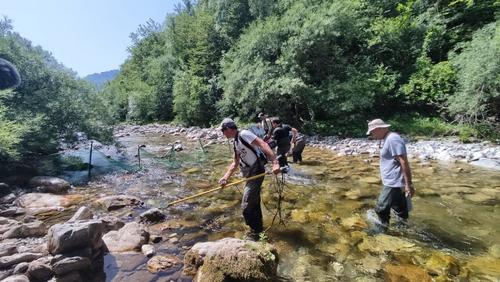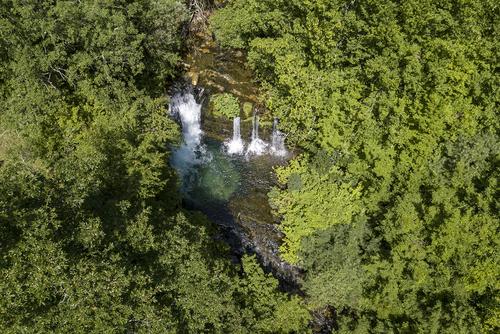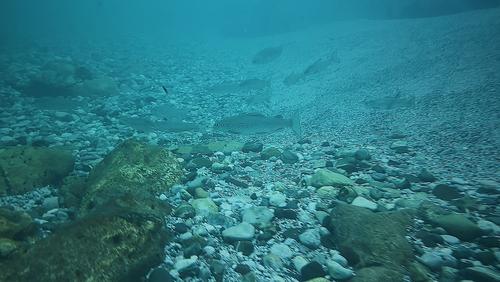Around 50 international scientists and river conservationists spent a week carrying out research on the upper reaches of the Neretva river. The data will be used to help stop hydropower projects on the Bosnian river.

Hydrobiologists examine the water values of the Neretva, zoologists search for fish and small animals.
© Vera Knook
In the upper section of the river, the Neretva is still allowed to flow freely, including wild waterfalls.
© Vladimir Tadic
A highlight was the discovery of softmouth trouts in a basin of the Neretva. The rare fish species is particularly threatened by dams.
© Joshua D. LimFrom 27 June to 3 July, a group of hydrobiologists, zoologists and cave researchers studied the upper Neretva river. They also examined the region’s caves which are closely connected to the river via the karst system. The research week was a continuation of similar expeditions undertaken in previous years on the Vjosa and its tributaries. There, the data ultimately helped to provide scientific proof of the Vjosa’s ecological value, to ward off hydropower projects, and to achieve the river’s designation as a national park.
During this year's research week, the scientists and river conservationists had a similar objective. While the middle reaches of the Neretva have already been destroyed by dams and weirs, its upper reaches remain a biodiversity hotspot. In total there are about 70 hydropower projects planned at the Neretva. To demonstrate the value of this picturesque river, interdisciplinary expertise was needed: ichthyologists produced evidence confirming the presence of the rare softmouth trout, entomologists discovered a variety of moths using a light trap they had set up, and hydrobiologists studied the quality of the water. Even though it will be months before all the results have been analysed, it became evident during the week itself just how ecologically valuable the Neretva’s upper reaches are.
“The landscape and biodiversity of the upper Neretva are overwhelming, and absolutely worthy of protection," said Dr Amelie Huber from EuroNatur. The project manager for fresh water protection attended Science Week on the Neretva. "We are determined to stop the planned power plant projects. The data collected will be crucial for this fight," said Huber.


